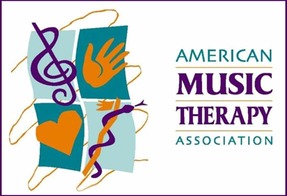|
Music therapy has long been recognized as a way to help patients heal from trauma. Music-focused therapy offers multiple benefits: it can foster positive social relationships, reduce feelings of anxiety, modulate the intensity of emotionally fraught memories, and bring about emotional catharsis as patients work through painful events. Music therapists have assisted people who have experienced some of the most terrifying natural disasters and terror attacks in recent history. For instance, therapists have brought the healing powers of music to survivors of 9/11, Hurricane Katrina in 2005, mass shootings, and war and conflict zones around the world. A tested healing profession The American Music Therapy Association (AMTA) offers a concise definition of its field: Music therapy is anchored in clinically verified and evidence-based practices designed to help patients achieve their therapeutic goals in collaboration with professionals credentialed through an approved music therapy program. A professional qualified in music therapy can assist clients in a variety of settings, including private practice, public hospitals, mental health clinics, substance abuse treatment facilities, and more. A century-old treatment for trauma Music therapy as a means of healing after trauma first gained currency in the United States after American physicians began treating soldiers who developed post-traumatic stress disorder (PTSD) during service in the First World War. Today, music therapy and its practitioners are part of a well-established medical and psychiatric tradition. Building multiple types of resilienceMusic therapy is not a “cure” for the aftermath of trauma, but it can help patients of all ages strengthen their understanding of their emotions and acquire positive skills for coping with long-term symptoms. The AMTA’s principal findings on the efficacy of music therapy note that it can be effective in strengthening patients’ ability to function successfully in terms of their emotions, reasoning capacity, relationships, and overall behavior. When successfully practiced, music therapy can also ease muscle tension, and it can be conducive to promoting greater relaxation and increased openness in interpersonal relationships. Going where words cannot For people who have experienced trauma, music can provide a deeply important means of communicating what they urgently need to express—without words. Music therapists often point out that their patients need to be reassured that the often-overpowering emotions they may feel in response to trauma are normal and valid. Patients also sometimes need “permission” to explore what are often threatening or negative emotions surrounding the events of their trauma, in a safe environment. Music therapy has shown the ability to provide a wordless way for patients to express fraught or uncomfortable emotions about traumatic experiences. The non-invasive, non-judgmental aspect of music therapy is particularly important to note here. Patients can pour their feelings into listening to or performing highly expressive, artistic creations without fear of the negative reactions or judgments of others. While talk therapies are often very helpful to patients, experts point out that music therapy offers the advantage of providing clients with a quick resource for tapping into previously ignored or threatening feelings and memories. In certain instances, music therapy has even been shown to lead to shorter inpatient stays and a better fulfillment of clients' larger goals for treatment. Increasing confidence and control Music therapy can also help patients to feel more in control of their own emotions and can give their self-confidence and feeling of personal empowerment a much-needed boost. For people who have undergone traumatic experiences, this is especially needed. Many people who have been traumatized feel confused, bewildered, and powerless. They may feel as though life has become chaotic and that nothing—and no one—can be trusted. Healing relationshipsIn addition, music therapy can assist people in reconnecting with their loved ones in positive ways, reestablishing bonds of intimacy that may have been strained or broken under the strain of the trauma. Easing stressStress reduction is perhaps one of the most meaningful and most studied benefits of music therapy. According to the American Psychological Association, a study of pre-term babies in a neonatal intensive care unit suggested that lullabies may have the power to soothe infants and their parents, who find themselves in the midst of a bewildering array of medically necessary, but intrusive and noisy machinery. The researchers in this 2013 study also surmised that the soothing music might have the ability to regulate the babies’ sleep habits.
Interestingly, of all the methods of delivering the music to the babies, singing was the most effective at slowing their heart rates and lengthening the amount of time they remained in a state of calm alertness. According to the study’s lead author, live music in particular shows the most potential to appropriately stimulate and activate the human body, elevate a patient’s quality of life, and promote recovery. Comments are closed.
|
Photo used under Creative Commons from Marina K Caprara

 RSS Feed
RSS Feed
